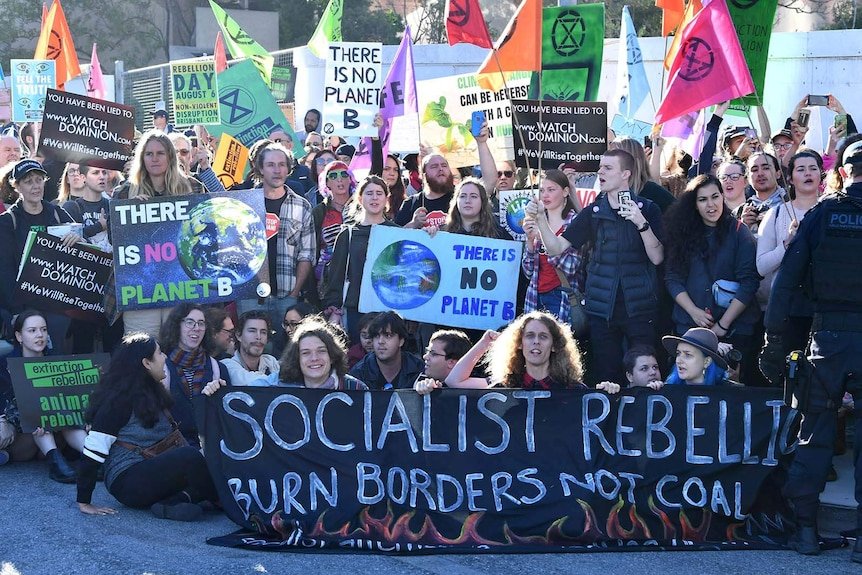Are You(th) Listening?
Author: Vivienne Kerslake | Project Consultant 2022
How are young people engaging in politics?
With the ever-advancing passage of time, we naturally expect evolution and progress to follow. Certainly today, progressive thoughts on equality, climate change, and poverty are more widely represented by younger demographics such as Millennials (born from 1981-1997) or the up-and-coming Gen Z (born from 1998-2012) than they are with older people. With this in mind, we might expect traditional methods of political expression to be neglected for new platforms like social media.
Apps like Instagram have become Gen Z’s primary method of political communication with a stark 59% of surveyed Zoomers (Gen Z) rating social media as their top way to get political information, in contrast with only 10% opting for newspapers. This popularity has not gone unnoticed, in 2021, an article from the University of Western Australia suggested politicians use social media to create a cult-of-personality or “political fandom” in order to increase engagement. Although the idea of political fandoms sound simplistically childish, much success has been found in it, notable political figures such as Greta Thunberg, Alexandria Ocasio-Cortez, and even Donald Trump all utilised social media to boost their political careers and create fanbases.
This increased civil participation seems to have had mixed results on voter turnout for Gen Z. A census survey in America (where voting is not compulsory) found that in 2020, 51% of 18-29 year olds voted, an increase of 20% since 2018. However, they were by far the lowest age group for voter turnout with the next highest being 30-44 year olds (64% turnout). This disparity in voter turnouts may stem from apathy and disillusionment in the political systems of modern democracies, as 47% of American Gen Z express that their political views are not represented particularly well by any candidate parties. Notably, they are working within a two-party system where they only have two options: vote Democrats or Republicans.
In a different survey for other forms of civic participation such as volunteering in charities, Gen Z were ranked as the highest age group with 46% having volunteered at some point in their lives. Could this be as a result of increased motivation stemming from social media? Did seeing their peers energetically supporting causes inspire this 46% to enact change or is it instead symptomatic of a generational attitude shift towards volunteering?
What does Gen Z’s engagement in social media really mean?
As forums for debate on policy and politicians, as platforms to organise protests and marches, as tools to educate and misinform; social media is many, many things. Events such as the School Strikes 4 Climate which coordinate worldwide strikes in protest of government inaction regarding global warming, were solely organised through online mediums. 10 million people from 260 countries have actively participated in these strikes, yet despite the large scale, the strikes have realistically seen no tangible policy change that can be attributed to them. Although many countries pledged to take action and announced climate emergencies, no concrete plans of action or schemes have been put in place as a result of the strikes. Scott Morrison even famously derided the strikes saying “schools need more learning, less activism”. That is not to dismiss the social impact of the strikes, at their peak in 2019 every news outlet was flooded with renewed talks about climate change and the increased urgency of the issue was certainly highlighted. Yet, despite high media pressure, all that resulted in the end was empty promises. Ultimately, what these protests and many of the others which gain ground on social media accomplish, is educating those who were previously unfamiliar or only passingly familiar with them. What they don’t do is pressure the politicians who are currently in power to act, that power seems to be held solely by lobbyists and backroom deals.
At the crux of it, social media only amplifies voices. But in a democracy, this is still incredibly important.
What changes to Gen Z’s political engagement need to be made to create tangible impacts in policy?
As Gen Z matures into its age group and school strikes become worker strikes, it is expected that politicians will no longer be able to ignore and dismiss their voices. Once they are fully assimilated as the majority of the voting block, Gen Z will possess the leverage needed to direct policy. Unfortunately, this strategy involves waiting and isn’t very proactive.
For a more active approach, Forbes suggests putting weight behind the threat of “strike” and protesting in such a way that is disruptive to policy makers or companies contributing to climate change excessively. Perhaps, directly outside the homes and workplaces of the powers that be. Although this method was unsuccessful when put into effect by the Extinction Rebellion, a climate change group which organised multiple rounds of civil disobedience in 2019 worldwide. As their strikes were responsible for road closures, eventually the media narrative began painting them as radicals and extremists. In Australia, no policy changes have been made as a result of these disruptive strikes either. Other suggestions included encouraging strikers to sign a “pledge” to embody a sustainable lifestyle, thus actually promoting tangible impacts albeit at an individual level rather than societal.
Extinction Rebellion in Australia
Oftentimes, decisions behind policy-making are unfortunately backed through lobbying that is inaccessible to the general public. However, social media platforms offer a unique opportunity to capitalise on the political fervour of Gen Z and open up lobbying to the everyman through crowdfunding. For example, Climate 200 is a crowdfunded initiative supporting 23 candidates in the 2022 elections of which 6 candidates won seats in their electorates. With 11,200 donors, Climate 200 is a winning case for the power of crowdfunding.
All in all, Gen Z is on the cusp of coming into their own and once they do, we can expect the political discourse to shift.

